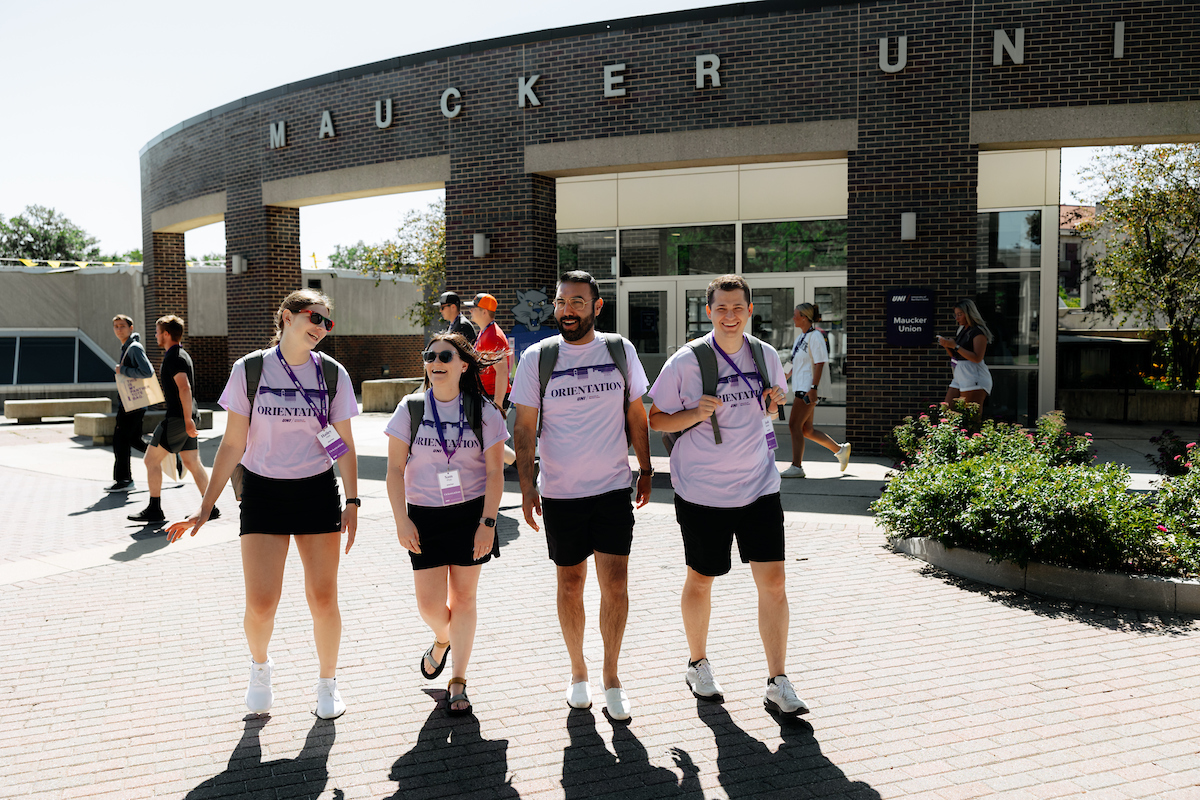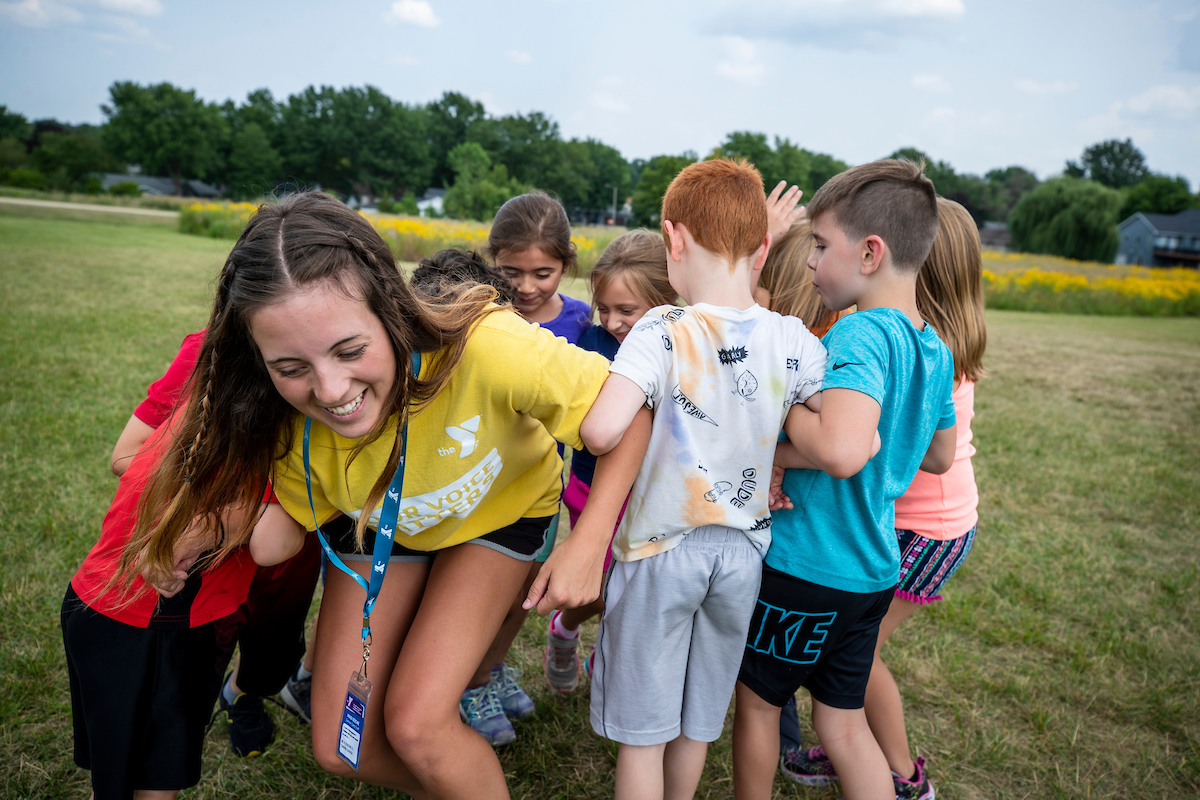Programs
The Department of Learning, Leadership and Community’s academic programs encompass five primary areas of focus in undergraduate and graduate studies:
- Educational leadership
- Instructional design and learning technologies
- Post-secondary education: student affairs
- Recreation, tourism and nonprofit leadership
- School psychology
Faculty also teach and mentor students in the primarily online Doctor of Education program with areas of specialization in principalship, superintendency, special education and allied health, recreation and community services. LLC faculty also lead new interdiscipinary options in esports administration and contribute to the interdisciplinary environmental resource major and the philanthropy and nonprofit development online master's degree.
In addition to program-associated certificates, the department oversees two new online graduate certificates in online teaching and artificial intelligence (AI) in education.
Educational Leadership
 Passion and purpose combine when you're ready to move forward with advanced studies in educational leadership, which represents a group of primarily online degree offerings at the master’s, graduate certificate or doctoral levels which push you further as leaders and administrators.
Passion and purpose combine when you're ready to move forward with advanced studies in educational leadership, which represents a group of primarily online degree offerings at the master’s, graduate certificate or doctoral levels which push you further as leaders and administrators.
Award-winning LLC faculty have prepared nearly 40% of today’s school administrators employed in Iowa. Mentors and critical friends guide and share their experience. Coursework, dialogue, projects and activities -- online and offline -- bring the potential of a career in educational leadership to life. Dedicated support staff—part of graduate education programs recognized among the best by U.S. News & World Report—help keep you on the path to success.
Superintendency
Advanced Studies Certificate
Doctor of Education
Teacher Leadership for International Educators
Master of Arts
Director of Special Education
Advanced Studies Certificate
Doctor of Education
Instructional Design & Learning Technologies

A revamped master’s program offers you an enhanced pathway to roles in settings ranging from corporate and traditional school settings to e-learning. With a blend of education, psychology and technology coursework, you’ll be on your way to roles like learning experience designer, corporate trainer, educational technology consultant and more.
Led by faculty focused on helping you master emerging technologies, you’ll gain skills in AI-driven learning, UX/UI, adaptive learning and instructional strategy and design. Another option: graduate certificates in instructional design, learning technologies and/or online teaching–all stackable toward your master’s degree to give you flexibility toward achieving your career goals. New at the undergraduate level are esports administration-related minor and certificates.
Instructional Design & Learning Technologies
Minor
Esports Administration
Certificates
Esports administration
Esports coaching
Master of Arts
Graduate certificates:
Instructional design
Learning technologies
Online teaching
Postsecondary Education: Student Affairs
 Helping others solve problems and accomplish goals is at the heart of careers in postsecondary student affairs. The online master's program helps you advance in careers which promise truly meaningful work. An online area of specialization at the doctoral level takes you even further.
Helping others solve problems and accomplish goals is at the heart of careers in postsecondary student affairs. The online master's program helps you advance in careers which promise truly meaningful work. An online area of specialization at the doctoral level takes you even further.
Known for strong camaraderie between faculty and students, this program leads to lasting connections with peers, faculty and the professional network gained through community and institutional partners who provide mentorship and support. A competency-based curriculum pairs with additional opportunities such as the Student Affairs Pre-Professional Association to prepare you for roles across the student affairs spectrum in higher education.
Postsecondary Education: Student Affairs
Master of Arts
Doctor of Education
Recreation, Tourism & Nonprofit Leadership

Undergraduate and graduate programs in recreation, tourism, and nonprofit leadership prepare you to empower others and strengthen communities. Explore multiple career paths with nationally accredited coursework, guided by faculty with real-world experience and active research. Dedicated, accessible faculty bring their expertise and their own hands-on background and research to enrich your student experience.
As an undergrad, you’ll complete a final semester-long internship; a minor and certificates let you specialize and expand your credentials. Graduate students build advanced skills to lead and manage RTNL programs. Whether starting out or advancing your career, you’ll promote healthy lifestyles and community well-being through roles in youth camps, recreation centers, parks, and a wide range of social and charitable organizations.
Recreation, Tourism & Nonprofit Leadership
Minor
Bachelor of Arts
Master of Arts
Undergraduate Certificates:
Nonprofit leadership
Outdoor leadership and education
Tourism
Youth work in religious settings (interdisciplinary)
School Psychology
 The School Psychology Program is really two programs in one: you’ll attain a master’s of education in contextual psychology and then complete your educational specialist (EdS) degree. Licensed school psychologists known for teaching, scholarship, service and advocacy for the profession lead the program.
The School Psychology Program is really two programs in one: you’ll attain a master’s of education in contextual psychology and then complete your educational specialist (EdS) degree. Licensed school psychologists known for teaching, scholarship, service and advocacy for the profession lead the program.
With a reputation drawing students regionally and nationally, the program prepares professional, ethical practitioners with a systemic perspective who link multi-method assessment to evidence-based interventions. An affiliated federal grant-based program supports a “grow your own” approach to building the school psychology workforce with AEA partners. Nationally approved by the National Association of School Psychologists, the program boasts an ongoing 100 percent placement rate.
School Psychology Program
Master of Arts (Educational Psychology)
Specialist in Education
